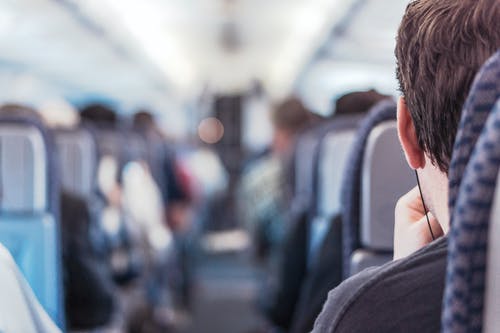Examining the Relationship Between Vacationing and Substance Misuse
Posted on March 21, 2024 in Uncategorized
 Vacationing is often associated with relaxation, exploration, and the opportunity to unwind from the stresses of daily life. However, for some individuals, the allure of vacation can also coincide with an increased risk of substance misuse. Whether it’s indulging in alcohol at beach resorts, experimenting with drugs at music festivals, or seeking out local substances in unfamiliar destinations, vacationing can sometimes serve as a catalyst for substance misuse. This article delves into the complex relationship between vacationing and substance misuse, exploring the factors that contribute to this phenomenon and discussing strategies for promoting healthier vacation experiences.
Vacationing is often associated with relaxation, exploration, and the opportunity to unwind from the stresses of daily life. However, for some individuals, the allure of vacation can also coincide with an increased risk of substance misuse. Whether it’s indulging in alcohol at beach resorts, experimenting with drugs at music festivals, or seeking out local substances in unfamiliar destinations, vacationing can sometimes serve as a catalyst for substance misuse. This article delves into the complex relationship between vacationing and substance misuse, exploring the factors that contribute to this phenomenon and discussing strategies for promoting healthier vacation experiences.
1. Escapism and Stress Relief: One of the primary reasons why vacationing and substance misuse commonly go hand in hand is the desire for escapism and stress relief. Many individuals view vacations as an opportunity to escape from their everyday responsibilities and unwind in a carefree environment. However, this desire to escape can sometimes lead to excessive drinking or drug use as a means of temporarily numbing stress or anxiety.
2. Peer Influence and Social Norms: Vacation settings often provide fertile ground for peer influence and social norms that condone substance use. Whether it’s the pressure to participate in binge drinking games at all-inclusive resorts or the normalization of drug use at music festivals, social dynamics can play a significant role in shaping individuals’ behaviors during vacation. In some cases, individuals may feel compelled to engage in substance use simply to fit in with their vacation companions or conform to perceived social expectations.
3. Accessibility and Availability: The accessibility and availability of substances can also contribute to substance misuse during vacationing. In tourist destinations known for their nightlife scenes, alcohol and drugs may be readily available and heavily promoted, making it easier for individuals to indulge without facing the same social or legal consequences they might encounter at home. Additionally, the allure of trying exotic or locally produced substances can be tempting for some vacationers, leading to experimentation and potential misuse.
4. Relaxed Attitudes Toward Risk-Taking: Vacation settings often foster a more relaxed attitude toward risk-taking behaviors, including substance use. In an environment where individuals may feel detached from their usual responsibilities and obligations, they may be more inclined to take risks and engage in behaviors they might otherwise avoid. This can manifest in increased experimentation with substances or a willingness to push boundaries in pursuit of new experiences.
5. Coping Mechanisms and Emotional Triggers: For some individuals, vacationing can serve as a trigger for underlying emotional issues or coping mechanisms related to substance use. Whether it’s using alcohol or drugs to cope with feelings of loneliness, boredom, or unresolved trauma, vacationing can exacerbate pre-existing vulnerabilities and lead to heightened levels of substance misuse.
Conclusion:
While vacationing offers the promise of relaxation, adventure, and rejuvenation, it’s important to recognize the potential risks associated with substance misuse during vacations. By understanding the factors that contribute to this relationship and adopting strategies to promote healthier vacation experiences, individuals can minimize the risk of substance misuse while still enjoying the benefits of travel and leisure. Whether it’s setting clear boundaries, practicing moderation, or seeking out substance-free activities, there are numerous ways to ensure that vacations remain a source of enjoyment and well-being without compromising one’s health and safety.
 Vacations are often envisioned as a time of relaxation, exploration, and enjoyment. However, for some individuals, the allure of a getaway can intertwine with the temptation of substance use. This article aims to explore the reasons behind the common coexistence of vacation and substance abuse, shedding light on the factors that contribute to this concerning trend.
Vacations are often envisioned as a time of relaxation, exploration, and enjoyment. However, for some individuals, the allure of a getaway can intertwine with the temptation of substance use. This article aims to explore the reasons behind the common coexistence of vacation and substance abuse, shedding light on the factors that contribute to this concerning trend. The links between vacation and substance abuse are multifaceted and complex. Vacationers often pack their own personal supply of drugs, regardless of any laws or regulations governing their transport. Because they lack the surveillance that they have in their own homes, vacationers are more likely to access drugs recreationally. This can lead to the development of substance use disorders and a cycle of dependence.
The links between vacation and substance abuse are multifaceted and complex. Vacationers often pack their own personal supply of drugs, regardless of any laws or regulations governing their transport. Because they lack the surveillance that they have in their own homes, vacationers are more likely to access drugs recreationally. This can lead to the development of substance use disorders and a cycle of dependence.
 One of the most alarming issues affecting society is substance abuse. Unfortunately, many people find themselves in the throes of addiction, compromising their relationships, their careers, and of course, their health. During a vacation, people can succumb to unhealthy habits and excessive substances, making vacation a potential trigger for drug addiction or worsening an already existing problem. That said, it is possible for people who are recovering from substance abuse or have suffered from addiction to enjoy a safe and healthy vacation.
One of the most alarming issues affecting society is substance abuse. Unfortunately, many people find themselves in the throes of addiction, compromising their relationships, their careers, and of course, their health. During a vacation, people can succumb to unhealthy habits and excessive substances, making vacation a potential trigger for drug addiction or worsening an already existing problem. That said, it is possible for people who are recovering from substance abuse or have suffered from addiction to enjoy a safe and healthy vacation.



